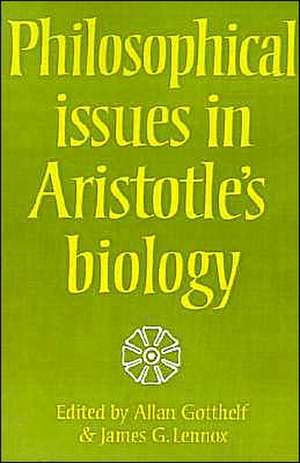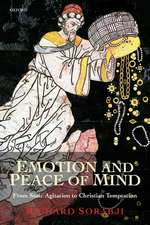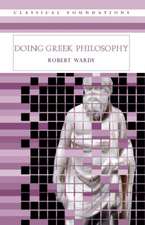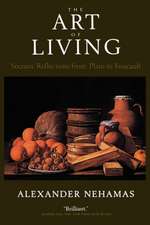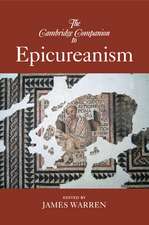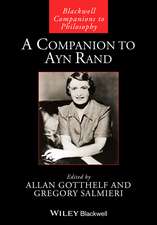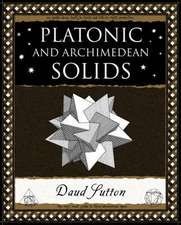Philosophical Issues in Aristotle's Biology
Editat de Allan Gotthelf, James G. Lennoxen Limba Engleză Paperback – 21 oct 1987
Preț: 443.07 lei
Nou
Puncte Express: 665
Preț estimativ în valută:
84.79€ • 89.15$ • 70.05£
84.79€ • 89.15$ • 70.05£
Carte tipărită la comandă
Livrare economică 16-30 aprilie
Preluare comenzi: 021 569.72.76
Specificații
ISBN-13: 9780521310918
ISBN-10: 0521310911
Pagini: 476
Dimensiuni: 154 x 223 x 30 mm
Greutate: 0.71 kg
Editura: Cambridge University Press
Colecția Cambridge University Press
Locul publicării:Cambridge, United Kingdom
ISBN-10: 0521310911
Pagini: 476
Dimensiuni: 154 x 223 x 30 mm
Greutate: 0.71 kg
Editura: Cambridge University Press
Colecția Cambridge University Press
Locul publicării:Cambridge, United Kingdom
Cuprins
Preface; Introduction; Part I. Biology and Philosophy: An Overview: Introduction; 1. The place of biology in Aristotle's philosophy D. M. Balme; 2. Aristotle's biological universe: an overview Montgomery Furth; 3. Empirical research in Aristotle's biology G. E. R. Lloyd; Part II. Definition and Demonstration: Theory and Practice: Introduction; 4. Aristotle's use of division and differentiae D. M. Balme; 5. Divide and explain: the Posterior Analytics in practice James G. Lennox; 6. Definition and scientific method in Aristotle's Posterior Analytics and Generation of Animals Robert Bolton; 7. First principles in Aristotle's Parts of Animals Allan Gotthelf; Part III. Teleology and Necessity in Nature: Introduction; 8. Aristotle's conception of final causality Allan Gotthelf; 9. Hypothetical necessity and natural teleology John M. Cooper; 10. Teleology and necessity D. M. Balme; Part IV. Metaphysical Themes: Introduction; 11. Aristotle's biology was not essentialist D. M. Balme; 12. Logical difference and biological difference: the unity of Aristotle's thought Pierre Pellegrin; 13. Kinds, forms of kinds, and the more and the less in Aristotle's biology James G. Lennox; 14. Animals and other beings in Aristotle L. A. Kosman; 15. Aristotle on bodies, matter, and potentiality Cynthia A. Freeland; 16. Aristotle on the place of mind in nature William Charlton; Index locorum; General index.
Recenzii
'This excellently planned and produced anthology is the proper answer to a long-felt need for the study of Aristotle's biological work … Particular attention is paid to the relationship of biology as a distinct inquiry and a set of principles to the broader philosophical problems of scientific knowledge and logic … Highly recommended for advanced students and specialists.' J. P. Anton, Choice
'The collection represents some of the finest work currently being done on Aristotle's philosophy, and its comprehensive scope and unified theme will make the book most valuable to all who are interested in Aristotle's philosophy or the history and philosophy of biology.' Mary Louise Gill, Isis
'The book will be essential reading for anyone working on substance, form, definition, teleology, etc. for a long time to come …'. Malcolm Schofield, Phronesis
'Indeed the whole book is a mine of good things; Gotthelf, Lennox, and the other contributors deserve our congratulations and encouragement.' John Rist, Phoenix
'It is obvious that Aristotelian studies has gained a new vitality, and the book is … a shining example of how the philosophy of science can enlighten the general history of ideas.' Gunnar Erikson, translated from Lychnos
'The collection represents some of the finest work currently being done on Aristotle's philosophy, and its comprehensive scope and unified theme will make the book most valuable to all who are interested in Aristotle's philosophy or the history and philosophy of biology.' Mary Louise Gill, Isis
'The book will be essential reading for anyone working on substance, form, definition, teleology, etc. for a long time to come …'. Malcolm Schofield, Phronesis
'Indeed the whole book is a mine of good things; Gotthelf, Lennox, and the other contributors deserve our congratulations and encouragement.' John Rist, Phoenix
'It is obvious that Aristotelian studies has gained a new vitality, and the book is … a shining example of how the philosophy of science can enlighten the general history of ideas.' Gunnar Erikson, translated from Lychnos
